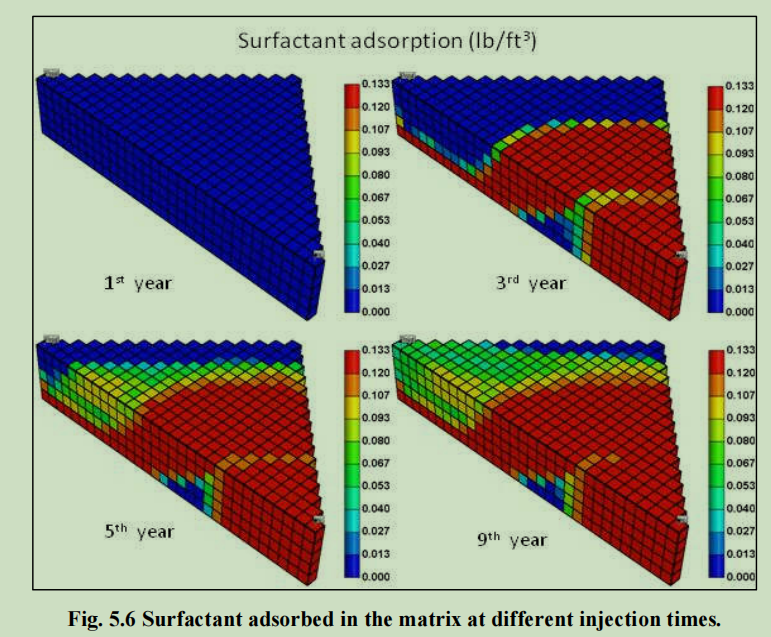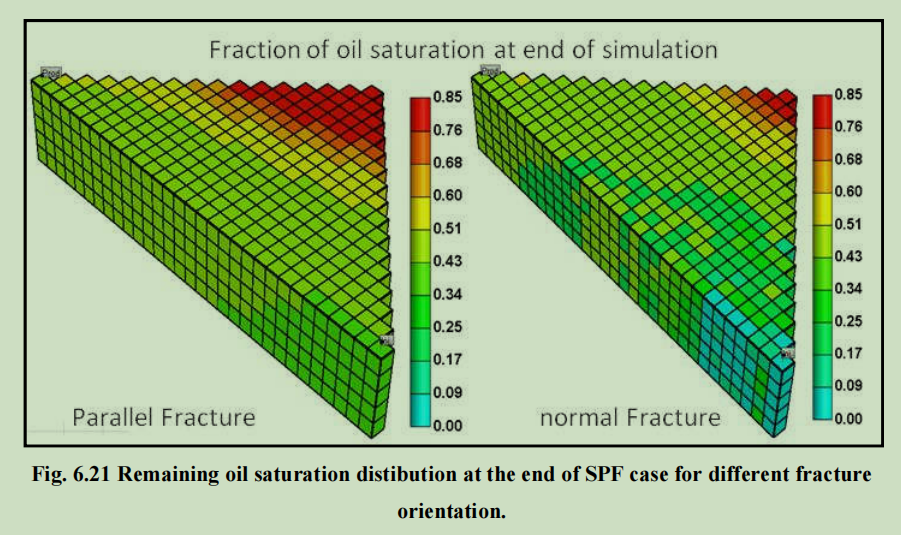SIMULATION STUDY TO INVESTIGATE THE EFFECT OF NATURAL FRACTURES ON THE PERFORMANCE OF SURFACTANT-POLYMER FLOOD IN CARBONATE RESERVOIRS
ABSTRACT
This thesis presents a comprehensive simulation study on the impact of natural fractures on the performance of surfactant polymer flood in a field scale surfactant polymer flood. The simulation model utilized for the study is a dual porosity dual permeability model representing 1/8 of a 20-acre 5-spot pattern. The model parameters studied include wettability alteration, IFT changes and mobility reduction effect. Thenresults of this study clearly indicate the importance of reservoir description and fracture modeling for a successful surfactant-polymer flood.
Naturally fractured carbonate reservoirs are usually characterized by mixed wettablility and low matrix permeability which leads to low oil recovery and high remaining oil saturation. Enhanced oil recovery methods such as surfactant-polymer flood (SPF) enhance the recovery by increasing the spontaneous imbibitions either by lowering the interfacial tension or altering the wettability. However, one of the main reasons for failed surfactant-polymer floods is under-estimating the importance of the reservoir especially the description of natural fractures and their effect on recovery.
Sensitivity runs were made to compare oil recovery capillary force, buoyancy force and viscous force. The simulation study indicates that critical water saturation should be reached before the start of surfactant-polymer flood to maximize oil recovery and utilize the capillary force. Also, when a surfactant alters the rock wettability, an optimum IFT should be identified for faster and higher imbibitions. The study shows that a contrast in permeability between that of the fracture and that of the matrix will result in a slightly lower oil recovery. Having the fracture perpendicular to the injector producer will result in a higher areal sweep and lower residual oil.
A sensitivity study on the effect of the size of surfactant polymer slug was not conclusive. Maximum adsorption capacity was reached which was one of the causes of low imbibitions rate. Following the surfactant-polymer with water flood was able to reverse the adsorption and restore some of the movable oil. The results show that if the enhanced fluid that alter the wettability, imbibed in the matrix, injecting high IFT brine will increase the rate of imbibition. The study calls for further investigation of this phenomenon through research using a scaled laboratory model to verify the simulation results.



